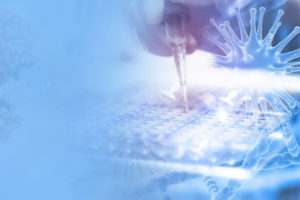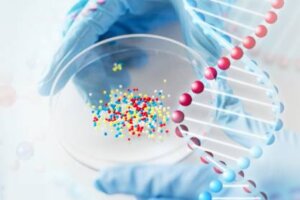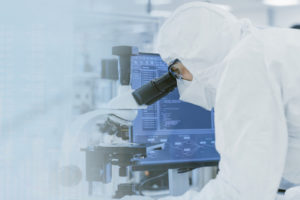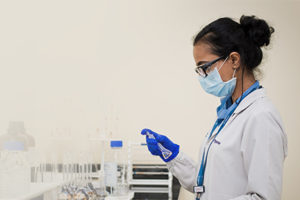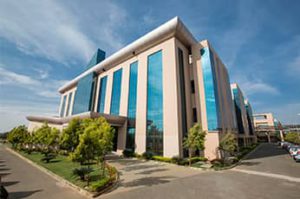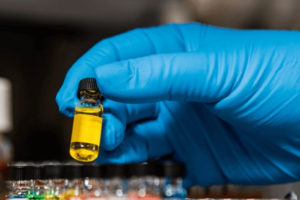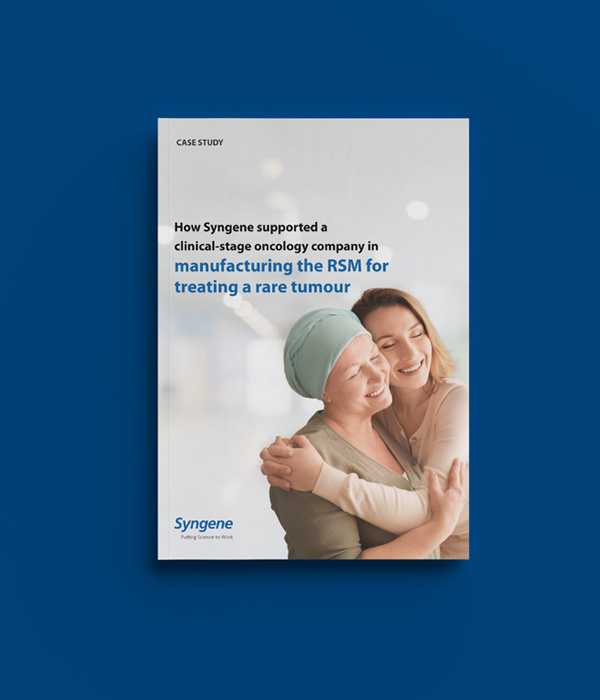Overview
A clinical-stage oncology company partnered with Syngene to manufacture the regulatory starting material (RSM) for two final API candidates for treating a rare tumour. Syngene synthesized the RSM and all the undesired isomers of the RSM, including specific impurities. Further, before scale-up, the Syngene team reduced the steps required for synthesis to half by implementing alternate strategies to minimize the operation time.
Syngene also initiated GMP synthesis of the RSM. In less than two years, we completed process optimization and method validations for the RSM. We also successfully manufactured a few kilograms of the RSM as per GMP and delivered it to the client for further clinical studies. The client has now advanced the development program into the placebocontrolled phase (Part B), which will be the basis for FDA submission.
The requirement
The client is a clinical-stage oncology company focused on developing and commercializing small molecule therapeutics for patients suffering from rare tumours and aggressive cancers. The company has two product candidates under development. The company partnered with Syngene to manufacture the regulatory starting material (RSM-II) for two final API candidates for treating a rare tumour.
RSM-II molecule synthesis journey at Syngene
Syngene initiated process familiarization with a target to deliver the RSM sample as a proof-of-concept. In less than a year, we completed the familiarization process and developed the process further to enable labscale synthesis.
The RSM-II molecule synthesis was challenging as it was an aliphatic molecule with no chromophore. Further, it required handling pyrophoric reagents in multiple steps, including chiral purification. It was very tough initially to meet all the stringent specifications. However, Syngene overcame all the challenges, developed the process, and met the requirements using an appropriate risk mitigation plan and world-class analytical development tools. After development, we delivered various quantities of the RSM-II ranging from 100 – 500g to support the client in synthesizing two APIs.
As a part of continuous improvement, Syngene synthesized all the undesired isomers of RSM-II, including impurities associated with the process, while ensuring the highest purity levels for assay quantification. Further, before scale-up, the process research and development team designed the initial process with an alternate strategy and reduced the number of steps required for synthesis by ~50%.
The next step was validating the analytical methods for robustness. Syngene worked on making the process more robust and scalable to deliver a few kilograms of the RSM per the technical scope. In less than two years, we successfully manufactured RSM-II on a kilogram scale per GMP scope and delivered it to the client for further clinical studies.
Before performing the scale-up batches, Syngene thoroughly studied the quality and quantity attributes of the RSM using appropriate tools. The activities/studies undertaken and the corresponding outcomes are provided in Table 1.
Activities/Studies | Outcomes |
|---|---|
Existing process and knowledge assessment | Process development summary report |
Analytical method development | Analytical method validation |
Identification and characterization of impurities | Synthesis of impurity reference standards and markers |
Analytical method (AM) verification, including precision and
accuracy, limit of quantification (LOQ), and limit of detection (LOD) | Analytical method validation, mechanism of action |
Process engineering and process safety studies | Equipment qualification, safety risk assessment |
As this molecule was critical to the client, Syngene formed a master team to support the manufacturing of RSM-II. The master team comprised the process research and development team, analytical research and development team, scale-up team comprising technology transfer, process engineering, and production teams, and the quality management team (quality control and quality assurance). With a detailed plan involving effective coordination with cross-functional teams and support from senior management, we successfully completed the program.
Conclusion
In late 2022, the client informed us that the study outcome of Phase II B (API-2) had delivered good results. The data showed rapid, deep, sustained tumour shrinkage as early as 16 weeks into treatment in nearly two-thirds of evaluable patients. The API was also found to be well tolerated, with a manageable safety profile for all tested doses.
The company has now advanced the development program into the placebo-controlled phase (Part B), which will be the basis for FDA submission.
Syngene is currently working with the client for future campaigns, including validation, process performance qualification (PPQ) campaign, etc., and looking forward to supporting the study for cancer patients.
To learn more about our Chemical Development services, contact our team.
